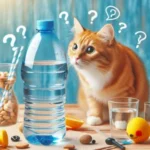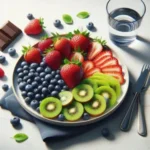When it comes to staying hydrated, many people are aware of the recommended daily water intake of eight cups per day. However, what happens when you drink too much water?
It is indeed possible to drink too much water. Drinking excessive amounts of water can lead to a condition known as water intoxication, also known as hyponatremia. This occurs when the level of sodium in the body becomes too diluted, leading to an imbalance in the body’s electrolytes.

Symptoms of water intoxication include headache, nausea, confusion, and in severe cases, seizures and coma. In extreme cases, water intoxication can even lead to death.
One of the main causes of water intoxication is consuming large amounts of water in a short period of time. This can happen during intense exercise or physical activity, when the body sweats and loses electrolytes that need to be replaced. It can also occur when drinking large amounts of water as part of a challenge or competition.
Pay attention to your body’s needs
Additionally, certain medications and medical conditions can increase the risk of water intoxication. Diuretics, which are used to treat high blood pressure and other conditions, can cause the body to excrete more water and electrolytes. In these cases, it’s important to closely monitor water intake and consult with a healthcare provider.
So, can you drink too much water? The answer is yes. While it’s important to stay hydrated, it’s equally important to monitor your water intake and pay attention to your body’s needs. It’s also crucial to replace electrolytes lost during exercise or physical activity.
If you’re unsure about how much water is appropriate for you, consult with your healthcare provider. They can provide personalized recommendations based on your health, activity level, and other factors.
In conclusion, while water is essential for maintaining good health, it’s possible to consume too much. It’s important to pay attention to your body’s needs and monitor your water intake to avoid the potentially serious consequences of water intoxication.






